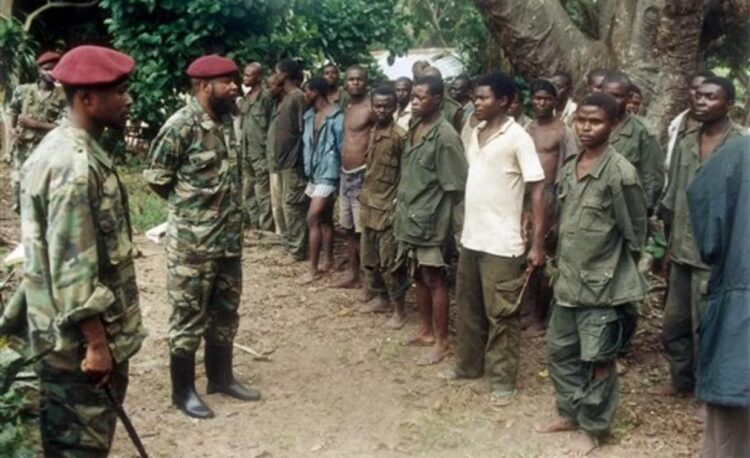In 1999, during the First Congo War, the Democratic Republic of the Congo initiated legal actions against the use of its territory as a battleground for other African nations. The DRC initiated proceedings against Burundi, Rwanda, and Uganda “for acts of armed aggression committed . . . in flagrant breach of the United Nations Charter and of the Charter of the Organization of African Unity” and sought reparations from all three countries. Twenty-three years later, some reparations had finally begun to be granted – from Uganda alone. Starting in 2022, after the International Court of Justice had ruled in 2005 that Uganda had violated several international laws in DRC, Uganda has been ordered to pay $325 million to DRC. It has been ordered to do so in yearly instalments of $65 million. However, neither of the two other nations involved in the First Congo War has been ordered to pay reparations or, more importantly, faced any legal repercussions.
The First and Second Congo Wars lasted from 1996 to 2002, resulting from tensions between Rwandan militias that had fled to the DRC, the Congolese government, and the newly formed Rwandan government. The fighting went on and off throughout the six years and even after the fact. The human impacts of the conflict, however, are more numerous than anything reparations could fix on their own. In total, around 5.4 million people were killed in the span of both wars, and 3.4 million people were displaced throughout.
Just like Rwanda has been worsening the current crisis in the Congo by supporting M23 and exploiting Congo’s instability for economic gain, Uganda has been gradually increasing its military presence in the DRC since 2023. Uganda has a substantial number of troops from the Ugandan People’s Defense Force (UPDF) stationed in the DRC. While these troops were initially stationed alongside the Congolese military in a joint defense project, the Congolese government has confirmed that Uganda has increased its presence in the eastern DRC without authorization.
Uganda has played both sides with regard to M23, supporting the rebel group and making efforts to prevent the rebel group from seizing control of more regions in DRC. This position is primarily based on Ugandan interests without any regard for the DRC’s sovereignty. For instance, on one hand, Uganda’s army chief, General Kainerugaba, has made statements in support of M23. On the other hand, Ugandan forces have also made some efforts to limit M23’s ability to seize more land, primarily in Uganda’s regions of influence.
Rwanda’s current government, on top of supporting M23 and continuing its involvement in Congo, comprises many people who were involved in the first Congo War. One notable instance is Rwanda’s current president, Paul Kagame. Kagame, who, before becoming president in 2000, was leader of the Rwandan Patriotic Front (RPF), one of the many Rwandan rebel groups that invaded the DRC.
In fact, the RPF, which would soon after its founding become the leading party within Rwanda, and its military wing were behind many of the atrocities during the First Congo War. On August 24, 1998, for instance, RPF soldiers alongside allied groups brutally killed over 850 civilians in what is known as the Kasika Massacre, burning alive many in the village of Kasika, opening fire on civilians in marketplaces, and even breaking into one Roman Catholic Parish and murdering the priest, nuns, and parishioners. Kagame was part of the leadership of the political wing of the RPF, not its military wing. Regardless, by virtue of these atrocities being sponsored by his party, he is equally complicit.
The international community, aside from the reparations being demanded from Uganda, did little at the time of these atrocities being committed and has done little since. The United States, which took part in training Rwandan forces and providing a good deal of humanitarian aid to the nation, turned a blind eye to the atrocities being committed by Rwandan militias. Lieutenant-Colonel Tom Odom, US Defense attaché in Kigali, said in reference to massacres of refugees in Rwanda, “The deaths were tragic… Compared to the 800,000 deaths of the genocide, the 2,500 deaths were a mere speed bump.”
One survivor of the first Congo War lamented, when speaking to Amnesty International, “My dearest wish was the establishment of courts. This is the wish of the Congolese people. Now we have a sense of frustration in the population. Why were there blockages? It is unclear why crimes that have already been documented have not been tried. Is there nobody emotionally moved by the crimes committed in Congo?” Some, evidently, have been moved, however. Amnesty International, in the press release the above testimony was published, has called for justice from Rwanda and Uganda concerning atrocities in the DRC. Likewise, the fact that Uganda has followed through in paying reparations to the DRC is a start, although efforts for justice shouldn’t stop there. Justice is a continuous process, and we can only hope that that process will continue for the DRC.
Written by Vernon Demir

